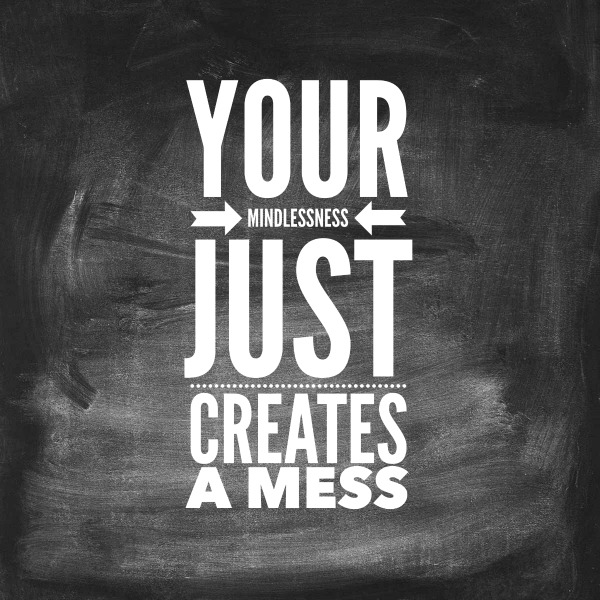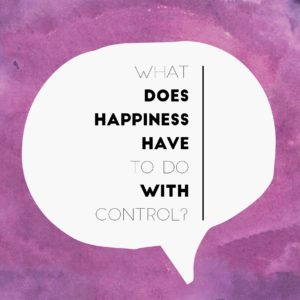 Your Mindlessness Just Creates a Mess
Your Mindlessness Just Creates a Mess
Mindfulness is becoming more mainstream everyday. I think that is a really good thing. There are an abundance of studies that prove the benefits of practicing mindfulness, ranging from its ability to lower stress to the positive changes it makes in our brains.
For me personally, I was one of those people who overthought everything. I was often worried about whether I had said or done the wrong thing. You might say I was consumed by past actions. That is the essence of being mindless. Always thinking about the past and basing my future actions on what I did or didn’t do in the past.
The biggest personal benefit I received from learning to be more mindful was to eliminate that type of thinking from my life. I now actively think through challenges based on current options, not choices from my past. I am able to stop the thoughts because I have a more objective view about my life and my abilities.
I know that just because something didn’t work in the past, that is not a reason I can’t accomplish what I want in the future. Mindfulness has given me a great tool for looking outside myself and the little box my thoughts had created for me.
We all have that little box that we’ve put ourselves in. We think we’re too old, too broke, too fearful or too…whatever. That little box is just allowing a mess to have a place in our mind. All those thoughts are under our control and all it takes to start breaking free is to learn to be more mindful about ourselves.
That is why be more mindful at work can take your productivity and creativity to a new level. It allows you to stop looking at issues the same way you always have in the past. Even if other staff members remain in their respective boxes and old patterns of thought, you don’t have to stay there with them.
Interested in giving it a try? Start with this easy, 3 minute mindful morning meditation today!





